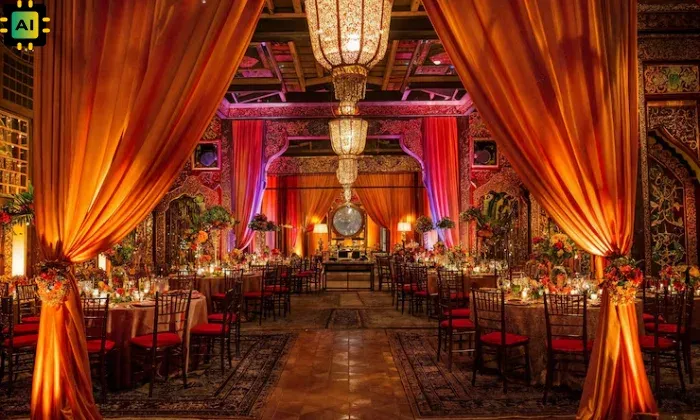Celebrating Bhai Dooj 2025 – A Ritual of Love, Legacy & Life
 Festival
FestivalEvery year, because the
glow of Diwali fades and homes are bathed in lighting, goodies and circle of
relatives time, some other stunning day arrives: Bhai Dooj 2025. While Raksha
Bandhan frequently receives greater attention, Bhai Dooj has its personal
unique allure – an afternoon while sisters practice holy tilak, carry out
aarti, serve meals and make sure that brothers guard them.
What is Bhai Dooj?
The phrase
"Bhai" manner brother and "Dooj" (or Dooj) comes from
"Dwitiya" which means that the second one day of a fortnight (lunar
day).
On this present day, the sister invitations
her brother, places tilak on his forehead, performs a quick puja or aarti,
gives him sweets and hearty food and in go back he offers her presents or
promises to take care of her.
History and mythology
Several legends add rich
cultural depth to Bhai Dooj:
A famous story is that of
Yama (the god of loss of life) and his sister Yamuna. He met her on the second
lunar day; He received him with tilak and a hospitality. Impressed by her
devotion, Yama blessed that any brother who gets Tilak executed by means of his
sister on this day may be secure from dying.
The 2d is of Krishna and
his sister Subhadra: After Krishna defeated the demon Narakasura, he went to
satisfy his sister, who welcomed him with tilak, goodies and aarti – so the
lifestyle persevered.
These testimonies base
the pageant on thoughts of protection, blessings, fraternal affection and the
cyclical nature of existence and dying – making it lots more than only a day of
replacing gifts.
Why is this necessary
(especially in 2025)
In our fast-paced,
mobile, sometimes fragmented lives, Bhai Dooj serves some unique social and
emotional purposes:
Strengthens the sibling
bond when siblings live separately, or enter their individual adult worlds.
This is a planned "moment" to say: I miss you.
Diwali brings families
together in an informal yet meaningful way during the season.
Provides ritual
continuity across generations. Grandparents keep the culture alive by watching
their grandchildren use tilak.
Encourages gratitude and
values: A sister's prayer for her brother, a brother's promise, shared meals -
these translate to respect, responsibility and care.
Stops the flow of
business: While gifts are part of it, the focus is ritual, presence and
blessings – not just buying something.
Creating memory anchors:
In 2025, digital distractions abound; Rituals like Bhai Dooj form the basis for
simple but powerful acts of bonding.
Bhai Dooj and Weddings: A
Contextual Perspective
Weddings in Indian
lifestyle aren't pretty much the couple – they are about the merging of
households, the reconciliation of siblings and the formation of new bonds. Why
is Bhai Dooj applicable for weddings:
Often, brides who depart
their mother and father' houses omit out on interacting with their siblings.
Celebrating Bhai Dooj before/after marriage offers a memorable moment for the
brother-sister couple.
In many regions, the
sister is married and returns home to Bhai Dooj. This strengthens the bond
among his delivery family and marital circle of relatives.
When siblings of the
bride/groom are worried, the wedding apparel often includes Bhai Dooj pictures
or ritual units (tilaka, goodies).
For vacation spot
weddings or relocated families, making plans a mini Bhai Dooj birthday
celebration at the day of the marriage party facilitates to encompass siblings
who can tour one by one.
The underlying fee of
vows, advantages, safety of the sister – suits seamlessly with the bigger
subject of marriage, care, union and commitment.
Pros and Cons of Bhai
Dooj Celebrations
Advantages
Strengthens the emotional
bond of brother and sister in a focused way.
Easy to follow family
enrichment rituals involving parents and extended family.
Rooted in tradition, but
flexible towards modern adaptations (virtual tilak, online gifts).
Low barriers to entry –
no elaborate setup required.
Provides a balance to the
pressures of professional celebration – with a focus on ritual and connection.
Cons:
If the sibling is far
away (geographically), it can be difficult to perform physical rituals and
there can be a feeling of emptiness when they are outside.
Excessive
commercialization: The meaning of a gift can fade if one treats the gift as
just another material exchange.
Ritual Fatigue: In
families with multiple festivals, Bhai Dooj may be celebrated haphazardly
rather than meaningfully.
Gender roles: The
traditional role of the sister using the tilak and the brother accepting may
seem archaic to some modern siblings – it may require adaptation.
Planning Conflicts: With
Diwali events, trips, weddings, siblings may have trouble coordinating –
leading to last-minute tension instead of calm at ritual times.
Fresh and innovative
thoughts for Bhai Dooj 2025
To brighten up the
festival once more, right here are some unique thoughts:
Virtual Tilak Ceremony:
If a brother/sister is abroad, ship a curated "Tilak Kit" (kanku,
rice, goodies) and pair it with a video call aarti moment.
Memory field change:
Sisters prepare a small jar of "10 memories" ("When we have been
children", "Our shared comic story"), brothers reply with a
promise listing.
Fun sibling video games:
Before the meal, have a fun quiz about youth memories and allow the siblings
solution every different's questions.
Family advice: Include
grandparents; Ask them to tell you a reminiscence approximately Bhai Dooj or
the mythology behind it. Helps deepen cultural roots.
Sibling photo wall or
"gratitude wall": Set up a board at domestic wherein siblings write
notes that recognize each other.
Step-by means of-step
ritual guide (traditional but adaptable)
The sister welcomes the
brother at home or visits him.
They each put on easy/new
clothes, accumulate a small puja/thali with diya, kumkum, rice, candies.
Sister lights a lamp,
plays aarti for her brother and prays for his lengthy life.
The sister puts red
kumkum tilak on the pan and maintains rice grains.
The brother applies
tilak, the sister serves goodies and food (frequently organized by way of the
sister).
The brother offers a gift
or token (cash, chocolates, something meaningful).
The two consume together,
alternate heat phrases and likely call/reminisce about distant siblings.
Alternatively, brothers
and sisters contact every different's ft and ask for advantages (in traditional
homes).
Some families invite
prolonged own family, which makes the instant communal.
Consider taking a photo
or creating a brief video – a reminiscence for the future 2025.
FAQ
Question 1: When is Bhai
Dooj 2025 celebrated?
Answer: According to many
almanacs, this opposition can be celebrated on Thursday, October 23, 2025.
Question 2: Can I perform
Bhai Dooj rituals if my brother lives abroad?
Answer: Yes. You can
perform a virtual Tilak ritual through video naam, deliver ritual thali or
sweets through Kali, and wherever you are, visualize your intentions for the
day.
Question 3: Can I and my
sister/brother replace expensive equipment?
Answer: Not vital. The
essence of the ritual is blessing and connection. Small significant presents,
handwritten notes or time collectively imply extra than the cost.
Question 4: Is the ritual
of Bhai Dooj confined to organic brothers and sisters?
Don't solution. Many
families amplify this to friends inclusive of cousins, step-siblings or
siblings. Bonds and intentions are greater vital than a strict courting.
Question 5: What if a
sister is married and lives away - can she arrange the ritual at her brother's
house?
Answer: Yes. In fact,
many traditions count on the sister to host/tour to the brother's house and
perform tilak and aarti there.
Question 6: Can brothers
additionally use tilak on sisters or are the jobs reversed?
Answer: Traditionally,
the sister does the tilak and the brother offers the present/promise. But
contemporary interpretations permit role reversal or mutual change of
advantages, as long as the spirit remains.
Question 7: How is Bhai
Dooj unique from Raksha Bandhan?
Answer: While both have
fun the brother-sister bond, Raksha Bandhan generally entails tying/threading
and defensive the Rakhi in August; Bhai Dooj comes after Diwali and makes a
speciality of tilak, benefits and party.
Blog Category
Popular Blogs
-min.webp)
Top Bridal Entry Ideas: Unique and Memorable Ways for Indian Brides
5 Jul, 2024

10 Unique Couple Outfit Colors for Sangeet Ceremony
2 Aug, 2025

Marriage Home in Alwar: Dream Wedding Hub
4 Nov, 2025
.webp)
Best Wedding Venues in Alwar : Dream Wedding Hub
25 Oct, 2025

Best Wedding Venues In neemrana (alwar)
31 Oct, 2025

Wedding Venue in Bassi (Jaipur) : Dream Wedding Hub
23 Oct, 2025
.webp)
Best Wedding Venues in Rajgarh : Dream Wedding Hub
31 Oct, 2025

Wedding Venue in Malviya Nagar (Jaipur): Dream Wedding Hub
23 Oct, 2025

7 Most Common Mistakes Made by Wedding Decorators and How to Avoid Them
22 Sep, 2025

The Best Mehndi Portrait Designs That You Can Opt For This Wedding Season
18 Sep, 2025